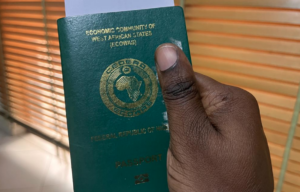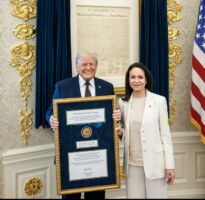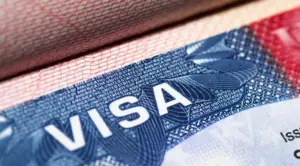France, the United Kingdom, and Germany, commonly known as the E3, declared that the European Union will reimpose sanctions on Iran beginning August 29 unless Tehran takes verifiable actions to curb its nuclear program.
According to Axios, the decision was made late Tuesday after a call between U.S. Secretary of State Marco Rubio and his European counterparts in Paris, London, and Berlin, during which the end of August was set as a concrete deadline for salvaging a nuclear deal.
However, U.S. President Donald Trump told reporters in Washington late Tuesday that he is “in no hurry to speak with Iran, even though they want to,” citing recent strikes by the U.S. on Iranian nuclear facilities in Fordow, Natanz, and Isfahan during the recent “12-Day War” with Israel.
“We destroyed their nuclear sites,” Trump said.

The E3 “have the right,” according to French Foreign Minister Jean-Noël Barrot, to reinstate sanctions that were initially put in place by the UN Security Council but were put on hold following the 2015 nuclear agreement.
Read Also
- Nigeria’s Removal from EU Financial High-Risk List to Enhance Access to European Markets – FG
- Lessons for Africa from Rising Discontent in Iran
- EU Actively Supporting Nigeria's Fight Against Insecurity - Gautier Mignot
- FG, EU, Sign Agreements to Boost Local Manufacturing, Reproductive Health in West Africa
If Iran breaks its obligations, these so-called “snapback” sanctions may be automatically reinstituted.
Should Iran fail to comply, the sanctions process may begin in late August, with full reimposition expected by mid-October.
The E3 hope this will provide leverage in future negotiations and help reinstate international nuclear inspectors from the IAEA, whose access has been limited since the strikes.
Importantly, under the 2015 deal’s mechanism, Russia and China cannot veto the reimposition of sanctions—nor can the United States, which withdrew from the deal in 2018 during Trump’s first term.
The snapback provision falls under Chapter VII of the UN Charter and would reinstate six previous Security Council resolutions. These include bans on uranium enrichment and the provision of missile-related technology to Iran.
Iranian Foreign Minister Abbas Araghchi warned that reimposing sanctions would mark “the end of Europe’s role” in Iran diplomacy.
“This could be the darkest moment in our relations with France, Britain, and Germany—perhaps beyond repair,” he said.
“It would end Europe’s position as a mediator between Iran and the United States.”





